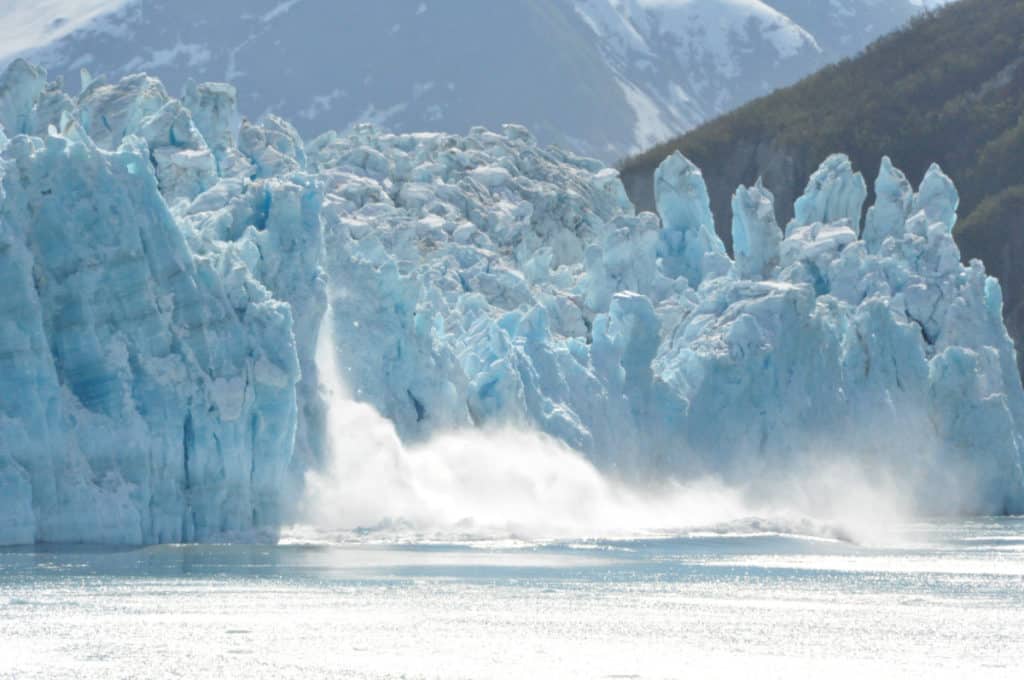
Over the years, warming oceans have been the focal point of global warming concerns, but what exactly will warmer oceans do to the Earth? According to a Science Magazine study, the oceans are warming faster than anticipated and the effects are starting to be seen.
Oceans take up a lot of space on the Earth’s surface, 71% to be exact, and as they warm, the consequences are being felt. Most of these changes will endanger either human or animal lives in certain areas. Below are the effects of warmer oceans.
Rising Sea Levels
One of the most common problems of global warming is the melting of polar ice caps and sheets. When the ice melts, it goes into the ocean and in turn raises the sea level. While you won’t notice any sudden increases overnight, over the course of years, the sea level can rise drastically.
This will have a catastrophic effect on cities that are very close to sea level. For example, Florida’s highest point is only 345 feet above sea level. However, some cities and towns that are located on the coast are between 6 to 10 feet above sea level.
Currently, we are expecting a 2-foot increase in sea level by the end of the century, but that number continues to increase as more greenhouse gases are released into the air. If nothing is done, towns, cities, and other structures located on the coast can be swallowed by the sea over time.
Marine Life At Risk

The warming oceans will affect humans significantly, but the first victims to feel the effects will be the sea creatures that reside in the ocean. Many species of fish can only survive in very specific habitats that require specific water temperatures. A temperature increase will result in the deaths of those species of fish and coral reefs.
Multiple species will suffer from sharks to exotic species found on the Galápagos Islands. However, the effect seen in sea life will significantly affect humans as well. Seafood is a major food source for the world and some countries around the world highly depend on seafood as their main source of proteins.
The slow eradication of marine life will have a tremendous effect on fishing businesses and food supply around the world.
Natural Disasters Become More Disastrous

Natural disasters like hurricanes will only get worse as a result of warming oceans. Hurricanes are formed over warm oceans. As you can imagine the warmer the oceans get, the easier it is for hurricanes to form. Thus, hurricanes are becoming more frequent.
However, this isn’t even the worst part. Typically, when hurricanes travel, they weaken because they reach cooler water, but that will happen less and less. This means that the hurricanes that do form will make land impact as stronger storms. As we have seen with hurricanes Irma, Harvey, and Michael, the destruction caused by hurricanes is severe.
How Are the Oceans Getting Warmer
The big question is how exactly are the oceans getting warmer? The answer is simple, climate change. This has been in the news for decades, but not enough has been done.
Greenhouse gas emissions are released into the air at dangerous amounts. These gases remain in the atmosphere and absorb heat from the sun. This absorbed heat raises the global temperature and results in the melting of the polar ice caps and sheets. Large ice sheets would naturally reflect the sun’s rays, but with the ice sheets melted, the oceans absorb that heat. These factors combined hasten the warming of the oceans.
Is It Too Late To Change
Most experts agree damage has been done, but we can certainly prevent future damage. The entire premise of the Paris Agreement was to limit the effects of global warming to a 1.5C temperature increase by the end of the century. This can be accomplished by cutting emissions around the world.
Unfortunately, most countries involved are simply not doing their fair share. Sadly, most countries only learn a lesson when it is too late and that will prove disastrous for the world if we wait that long. Humans can make a massive difference by cutting emissions, reducing power consumption, driving less, recycling, and many other simple tasks.
However, nations around the world simply do not act on the science that proves the connection and instead focus on economic interests.

